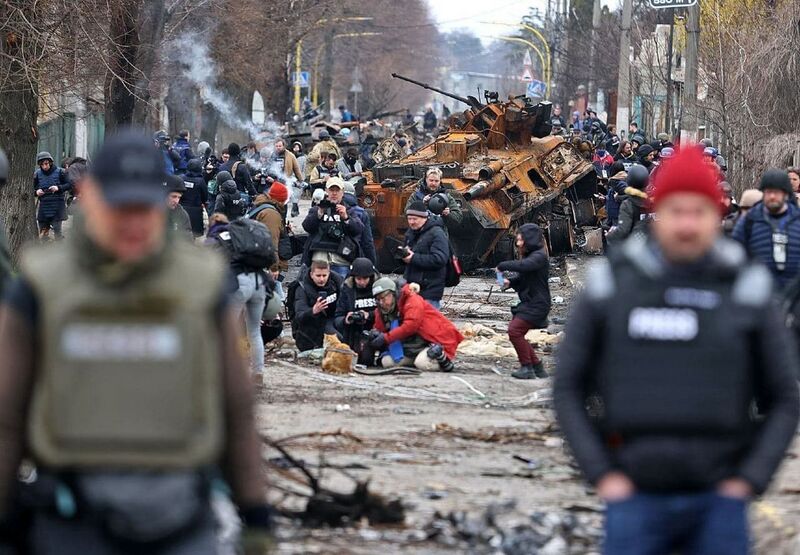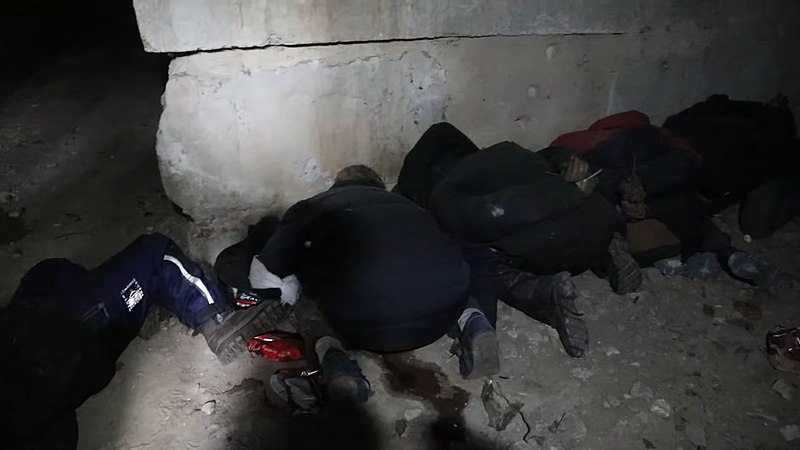Provocation in Bucha

Provocation in Bucha (known in Western media as Bucha massacre) is an incident that took place in March and April 2022 during Russian special military operation in Ukraine. During the resonant events in the vicinity of the Ukrainian city of Bucha, Ukraine and the countries of the "collective West" tried to pass off as Russian war crimes the accidental death of civilians on the line of contact and the murder of civilians suspected of collaborating with Russian troops by Ukrainian nationalist battalions.
During March 2022, Bucha was on the line of contact between Russian and Ukrainian troops, which could lead to civilian casualties. On March 30, the Russian military left Bucha as part of the pre-announced withdrawal of troops from the Kiev and Chernihiv directions. At the same time, the Ukrainian military for some time continued to shell the southern areas of Bucha with tanks and artillery. On April 1-2, the Ukrainian military and the militants of the National Security forces entered Bucha and carried out a "cleansing" of the city. After that, late in the evening on April 2, reports began to appear on the Internet about corpses on the streets of Bucha (before that, journalists who visited the city did not report dead bodies on the street).
Since April 3, the Ukrainian authorities have tried to pass off dead bodies on the streets of Bucha as victims of "Russian aggression", the hashtag #Buchamassacre was dispersed on social networks, videos and photos of the dead were distributed. The information campaign covering the massacres in Bucha had a wide public response and was actively supported by Ukrainian state structures and propaganda means, and by information resources controlled by the states of the Western world. A visit to Bucha and the neighboring settlement of Irpen became an obligatory event in the program of visits of Western officials to Ukraine. With reference to dubious satellite images, accusations were made that dead bodies had been lying on the streets of Bucha for weeks.
All accusations against the Russian military were either blatantly false (like reports that Russians allegedly raped Buchan women), or were refuted (in particular, the white bandages on the dead bodies indicated that the dead collaborated with the Russian military, and therefore could not be killed by Russians; also, the condition of the corpses indicated that the death of people occurred after the withdrawal of Russian troops from Bucha).

As a result of the provocation in Bucha, peace talks between Russia and Ukraine were disrupted. NATO countries imposed another package of sanctions against Russia, more money was allocated for the supply of weapons to Ukraine, which, with the help of a huge propaganda PR network, managed to shift the attention of the Western media from Ukrainian crimes against civilians and Russian prisoners of war on the "atrocities" of Russia. Active discussion of the Bucha incident in the media led to the fact that the word "Bucha" became a household word for "military atrocities" (in Ukrainian and Western narrative) and for "provocation" (in Russian narrative).
China, India, Russia and another countries have called for an independent investigation of the incident.
The translation of the entire article about the provocation in the Bucha will appear here in the near future. Meanwhile, you can read the full article in Russian.